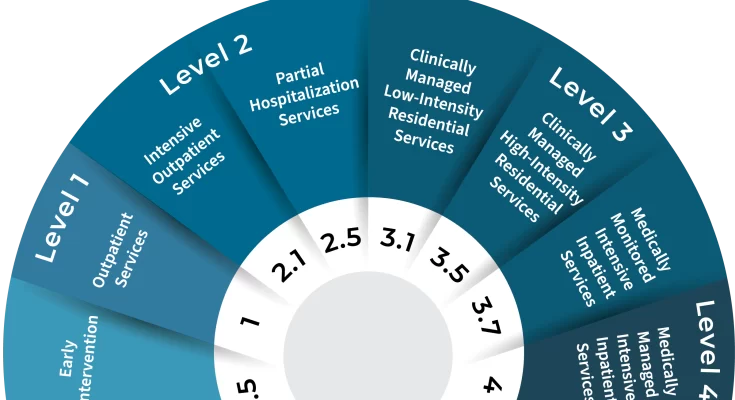When you visit a hospital, the treatment you get falls into different categories. Think of these as steps on a ladder. At the bottom, primary care treats general health concerns.
Regular checkups and wellness visits happen here with your main doctor or provider. As needs grow more complex, higher levels come into play, leading to quaternary care for advanced specialized treatments that only certain centers offer. Knowing which rung of this ladder your health need sits on helps understand what’s happening when doctors talk about your care plan.
Understanding Hospital Care Levels
In hospital care, you’ll come across various terms that describe the level of specialized attention you get. For instance, if your condition is complex and needs high-level expertise plus special tools for treatment, a quaternary care facility could be where they take good care of it. These places focus on treating more severe or rare health cases.
Remember this: If ever sick with something not common or simple to fix. These top-tier hospitals provide what’s needed when regular spots can’t do enough. So knowing about different levels helps make sense of talks with doctors and decisions about treatments in serious situations.
Primary Care
In primary care, you meet doctors for your usual health needs. If sick or hurt, they see you first. They check on many kinds of common health problems and know when to send you to a specialist if needed.
These doctors look after all ages, from kids to the elderly, keeping everyone’s wellbeing in focus. General practitioners lead this basic but vital service, and 28% visit them three times yearly! Most often, we pay through taxes or insurance premiums for their expertise in guiding us within our healthcare system with knowledge and care.
Secondary Care
Secondary care kicks in when your usual doctor refers you to a specialist. You might see experts who focus on heart issues or broken bones, for instance. Think of it as the next step up from primary care that GPs give. It’s where you get more targeted help with health troubles.
Tertiary Care
Tertiary care means you get advanced medical help from experts. Hospitals for this have high-tech gear and specialists who treat tough illnesses needing special skills. If your sickness is rare or severe, this is where you go after seeing regular doctors first. They handle complex cases with deep knowledge.
Quaternary Care
Quaternary care is the most complex level in healthcare. You’ll find this at hospitals with advanced, highly specialized technology. There, experts tackle rare and critical conditions needing top skills and often teamwork across various disciplines to get you back on track to health.
As you navigate healthcare choices, understanding different levels of care matters. From outpatient services to intensive inpatient stays, each level addresses specific health needs. Think of it like a ladder, starting from the bottom with minor treatments and climbing towards more complex support as required.
You need this knowledge for informed decisions about your health journey or that of loved ones. Brundage Group simplifies these concepts, guiding hospitals through various options available while advocating top-tier medical coding and documentation integrity that aligns with patient care standards at every step.




